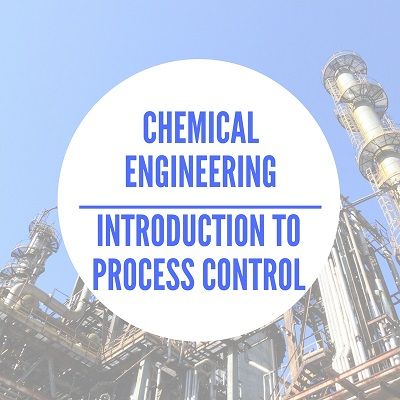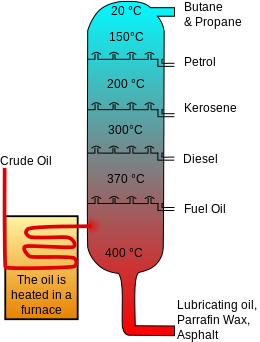Chemical Engineering - Introduction to Process Control
.jpg)
This post aims to serve as an entry into the world of process control from the Chemical Engineering point of view to motivate and help people who are interested in this topic and to show the importance of process control which represents one of the most useful areas in the industry, it is almost impossible to achieve safe and profitable conditions in a plant without the help of Process Control.
Global competition has rapidly changed the landscape of production and consumption of chemical products, the changing nature of industrial processes to meet the market requirements creates the need to develop chemical processes that involve transforming raw materials into desired products in an efficient, safe and economic way and also harmless to the environment. To achieve this, the equipment in the plant (reactors, distillation and absorption columns, filters, decanters, heat exchangers, among other unit operations) must be operated correctly.
What is a Chemical Process?
Any processing unit or combination of these, used for the transformation of raw material through chemical, physical, mechanical and/or thermal changes in a finished product is a chemical process.

These processes are dynamic in nature, they always change and if pertinent actions are not made, the important variables of the process, those related to safety, product quality and production rates, will not comply with the design conditions. This can be achieved with instrumentation and process control, which is a branch of engineering that involves the measurement and collection of information of the field parameters as well as making changes in the process variables for the safe and efficient operation of chemical plants. This helps to maintain the process variables such as:
- Temperature
- Pressure
- Flow
- Composition
- Among others.
Checking and regulating these variables can be carried out automatically by installing a set of instruments for measurement and manipulation of the process that can be known as the control system.
The basic principles for the operation of the units of a chemical process are focused on achieving the following objectives:
- Operate processing units safely. This denotes that no unit should be operated close to the conditions considered dangerous both for the health of the operators and for the useful life of the equipment. Operating conditions that may violate environmental regulations should be avoided.
- Maintain constant production flows. The amount of final product required from a plant at any time is usually determined by market requirements so that production flows should be maintained as much as possible in the profitable specifications.
- Maintain the quality of the product within specifications. Products that do not meet the required quality specifications should be discarded as waste or reprocessed when possible. Satisfying the needs of customers represents a great motivation to achieve the specifications of product quality.
To achieve the aforementioned objectives it is necessary to monitor and be able to induce changes in those key variables of the process that are related to safety, production flows and product quality.
This dual task of:
- Check the conditions of the process.
- Promote changes in the variables to maintain the operating conditions.
It is the work of a control system.
It is an ordering of physical components, linked in such a way that they regulate, direct or command the same system or another to obtain a specification required in the process. It is said that a control system operates MANUALLY when the hand of man intervenes and in AUTO (automatic) when the hand of man does not intervene. A control system must be designed so that it is versatile enough that its operation can be changed from AUTO to MANUAL or vice versa when operational conditions require it.
The processes dynamics and control is the aspect of chemical engineering that is responsible for the analysis, design and implementation of control systems in order to achieve specific objectives of safety, maintenance of quality and production levels.
References:
- Holzbock (2007). Instruments for Measurement and Control. Illinois, EEUU. CECSA.
- Smith y Corripio (2000). Principles and Practice of Automatic Process Control. México. LIMUSA
- Seborg, Edgar y Mellichamp. (2009) Process Dynamics and control. Nueva York, EEUU. Wiley
- DiStefano, Stubberud y Williams (2004). Retroalimentación y sistemas de control. Bogotá, Colombia. McGraw-Hill.
- Luyben (1996). Process modeling, simulation and control for chemical engineers. McGraw-Hill.
- Ogata. (1998). Modern Control Engineering. Pearson.

I hope you like my first post in English. I am open to suggestion and recommendations.
Teaching that impacts is not head to head, but heart to heart.
- Hendricks
I have a cousin who is studying chemical engineering. Was totally baffled by it and didn’t know. But came across your post and is actually interesting the whole process.
I also learned about this in high school so understanding most of wasn’t too hard 😂.
Great post.
Thanks you so much! Process control and dynamics are really interesting (If you are into that kind of stuff) because it is a multidisciplinary discipline involving chemical, mechanical and electrical engineering as well as programing and telecommunication.